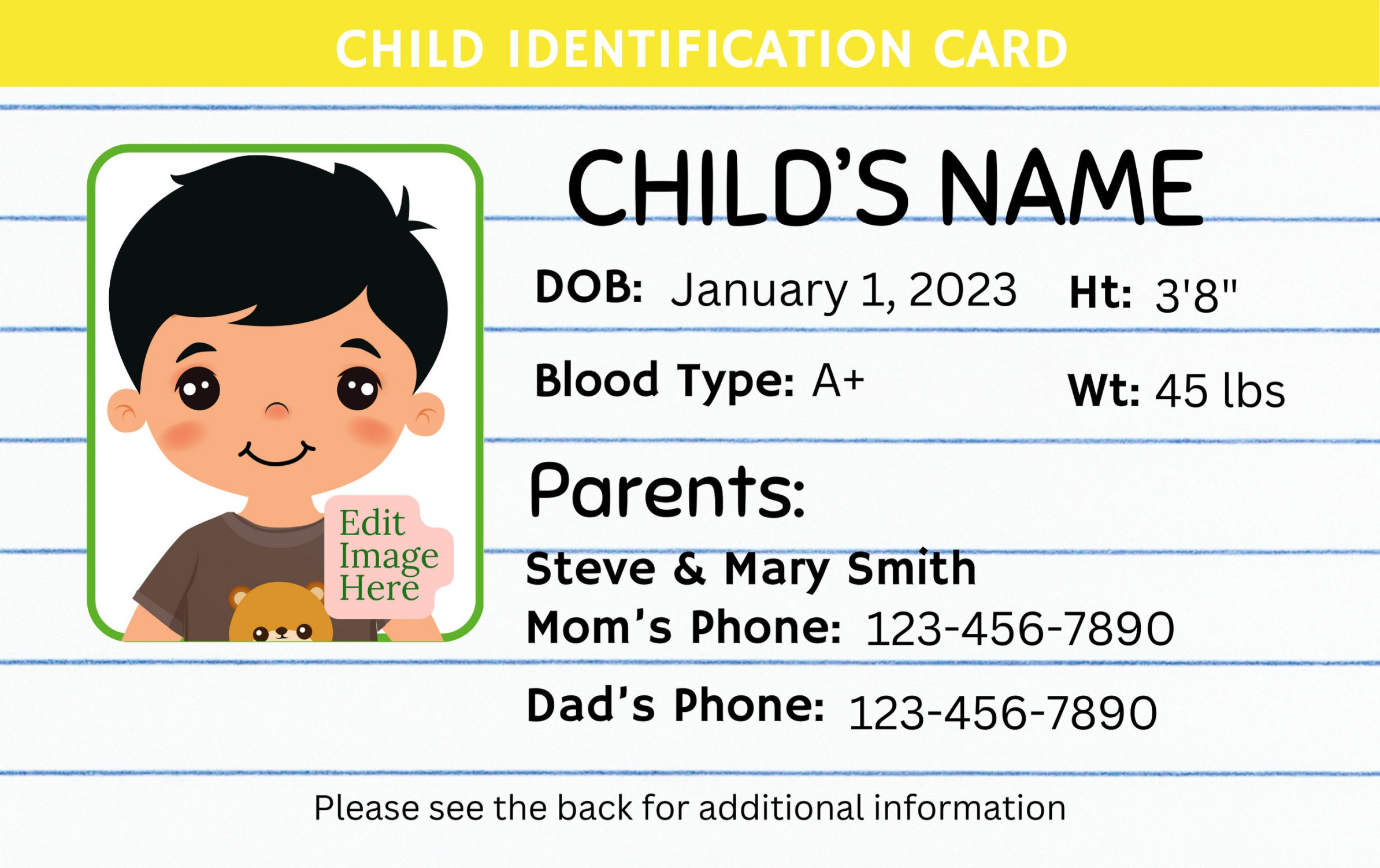ID Card templates for kids are essential tools for schools, camps, and other organizations that need to identify and track children. A well-designed ID card can enhance safety, security, and communication. In this guide, we will explore the key design elements that contribute to a professional and trustworthy ID card template for kids.
Font Selection

Choosing the right font is crucial for conveying professionalism and readability. Opt for fonts that are clean, legible, and easy on the eyes. Avoid overly decorative or cursive fonts that may be difficult to read, especially for young children. Sans-serif fonts like Arial, Helvetica, or Roboto are excellent choices for their clarity and modernity.
Color Scheme
The color scheme of your ID card should be carefully considered. Bright, vibrant colors may be appealing to children but may not project a professional image. Stick to a limited palette of colors that complement each other and create a cohesive look. Consider using a combination of neutral colors like black, white, and gray with a few accent colors.
Layout and Organization
A well-organized layout is essential for a professional ID card. Ensure that all information is easy to locate and read. Use clear headings and subheadings to separate different sections of the card. Consider using a grid system to align elements and create a balanced design.
Essential Information
A child’s ID card should include the following essential information:
Full Name: Use the child’s legal name.
Design Elements
To enhance the professionalism and visual appeal of your ID card, incorporate the following design elements:
Logo: Use a clear and recognizable logo of your school or organization.
Customization Options
To make your ID cards more personalized and engaging, offer customization options. This could include allowing children to choose their favorite colors, patterns, or photos. Customization can help children feel more connected to their ID cards and take pride in wearing them.
Printing and Materials
The quality of the printing and materials used for your ID cards will significantly impact their durability and professionalism. Choose a high-quality printer and use durable cardstock or plastic materials. Consider laminating the cards to protect them from wear and tear.
By carefully considering these design elements, you can create professional ID card templates for kids that are both functional and visually appealing. A well-designed ID card can enhance safety, security, and communication within your organization.